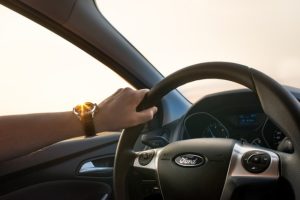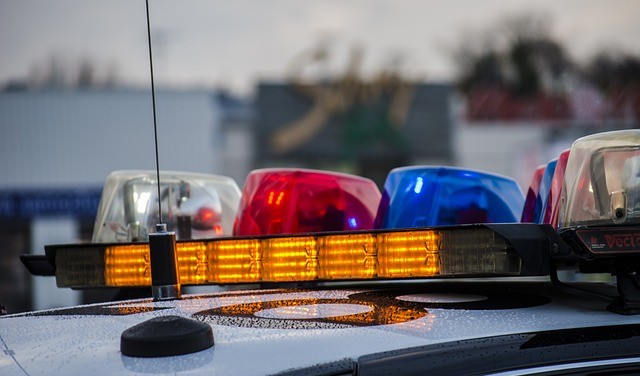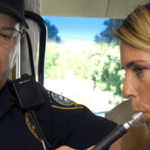How to Avoid Points and Fines from Traffic Tickets
A misunderstanding of the law might result in tickets, fines, and points that could have been avoided.

Questions? Here is what you need to know:
Many of us who were taught to drive in rural areas and/or by our parents have misconceptions about what is legal and what is not. The issue is that most of us do things every day that can cause us to be stopped by police, issued traffic citations, incur fines and costs, possible license suspensions, and legal fees. Simple common sense can help you avoid points and fines in many cases. However, if you do run into a problem, we will help you. The attorneys of LEWIS & DICKSTEIN, P.L.L.C. have spent decades in traffic court. We’ve mastered the Michigan Motor Vehicle Code and all defenses available under the law. We can assist you with questions or problems about driving a car in Michigan.
List Of Easy Mistakes and Misunderstandings That Can Cost You
Do you have to come to a complete stop at a stop sign with a white border around it? Yes. A “rolling stop” is not allowed. Stop means stop. There can be no forward motion. One traffic court judge asked a person contesting a ticket, “Did your car come to rest and settle backward at the stop sign?” The judge asked if the car’s motion caused the car to come to rest by a slight movement to the rear. That is a stop! Understanding frequent traffic misunderstandings can help you avoid unnecessary points and fines.
Here are some other things to think about:
- You can have an alcoholic drink in a vehicle if you are not the driver. This does vary by state, but the answer is no in Michigan.
- You can drive with your emergency flashers if your car is damaged or overloaded. Your flashers can only be used when the car is broken down and not moving for safety reasons. Police officers often overlook flashers while being towed or driving slowly for some mechanical reason, but they do not have to.
- Pick-up and SUV drivers can use snowplow lights instead of headlights. This is allowed if there is an actual blade on the vehicle. If you use snowplow lights in the summertime, you may be ticketed for overly bright lights blinding other drivers.
- If you have a headlight out, drive with your bright lights on. No. This can get you two tickets—one for a headlight being out and one for failing to dim your lights. If you have a headlight out — get it fixed immediately.
- The stores sell it, so it must be legal. This is just not true. One of the more common mistakes is window tinting. Unless you have a doctor’s prescription for window tinting, it is usually only allowed to the extent that most cars leave the factory. Also, be aware of things hanging from your mirror. Fuzzy dice, as that can get you an obstructed vision ticket.
- Statute of limitations will let you off the hook if you wait long enough. No. Avoiding a ticket will only increase your fines and costs, a suspension of your license, and a possible warrant for your arrest. License suspensions and warrants are effective until you deal with them.
- You cannot be ticketed for running a red light on icy roads. No. If the roads are icy and you legitimately cannot stop, beeping your horn is an appropriate safety maneuver. However, that does not prevent the possibility of an accident and a possible ticket for that having happened. The best way to avoid points and fines is to drive carefully, especially in adverse weather conditions.
- You can be a jerk to the police officer, who has to take it. No. Being a jerk to the police officer can bring on a completely different set of problems, such as resisting and obstructing a police officer or disturbing the peace. If you act like a jerk, the police officer will think of a charge to file against you.
- There is a minimum amount over the speed limit that police have to give you before writing a ticket. No. You can get a ticket for driving under the speed limit if conditions make that speed dangerous. Most police officers will not write a ticket for a few miles over the speed limit. However, you cannot count on that. One mile an hour over the limit is speeding.

How Defense Lawyers Persuade Prosecutors to Reduce or Dismiss Tickets
When facing civil infractions or misdemeanor tickets, the consequences can extend far beyond the immediate fines and points on your driving record. The ripple effects can impact your insurance rates, employment opportunities, and driving privileges. This is where the expertise of a seasoned defense lawyer becomes invaluable. At LEWIS & DICKSTEIN, P.L.L.C., our approach is centered on negotiation and advocacy, aiming to persuade prosecutors to reduce or dismiss tickets, helping our clients avoid the financial burden and long-term repercussions of these charges.
- Building a Strong Defense: The first step in persuading prosecutors involves building a robust defense case. This includes gathering evidence, identifying inconsistencies in the ticketing officer’s report, and leveraging legal precedents. By presenting a well-prepared case, we demonstrate to prosecutors that proceeding with the charges might not be in their best interest, especially if there’s a significant chance of a successful defense in court.
- Leveraging Legal Knowledge: Our attorneys possess an in-depth understanding of traffic and misdemeanor laws, allowing us to identify legal technicalities or procedural errors that can be used to our clients’ advantage. This knowledge not only aids in crafting compelling arguments but also positions us as authoritative figures in negotiations with prosecutors.
- Negotiating with Diplomacy and Tact: Persuading prosecutors to reduce or dismiss charges requires a combination of diplomacy and tact. Our defense lawyers are skilled in negotiation, knowing when to push and when to compromise. Maintaining professional relationships with prosecutors and demonstrating a willingness to find mutually beneficial solutions increases our clients’ likelihood of favorable outcomes.
- Highlighting Mitigating Circumstances: The context surrounding a ticket can influence prosecutorial discretion in many cases. We make it a point to highlight mitigating circumstances, such as a clean driving record, the non-dangerous nature of the alleged infraction, or any personal circumstances that warrant leniency. These factors can persuade prosecutors to consider alternatives to penalties that include fines and points.
- Advocating for Alternative Resolutions: Finally, we advocate for alternative resolutions that serve the interests of all parties involved. This might include traffic school, community service, or other diversion programs that address the underlying issues without resorting to punitive measures. Such alternatives benefit our clients and align with the broader goal of promoting safe driving behaviors.
At LEWIS & DICKSTEIN, P.L.L.C., we believe every ticket— a civil infraction or a misdemeanor—deserves a vigorous defense. By employing strategic negotiation and advocacy, we work tirelessly to persuade prosecutors to reduce or dismiss charges, helping our clients avoid fines, points, and the lasting consequences of a conviction. If you’re facing traffic or misdemeanor tickets, partnering with an experienced defense lawyer can provide the edge needed to protect your rights and future.
Future Impact of Points, Fines, and Moving Violations
Regarding traffic offenses, the impact of moving violations and the accumulation of points on your driving record extends beyond immediate penalties. Each violation contributes to a portrait of your driving habits that law enforcement officers and the court system use to gauge your adherence to traffic laws. A history of moving violations or points from tickets can significantly reduce your chances of receiving a warning or leniency for future traffic offenses. Officers are more likely to issue citations to individuals with blemished driving records as they perceive them as habitual offenders. Similarly, courts often consider your driving history when determining penalties, and a record filled with violations can lead to harsher consequences. This pattern affects your interactions with law enforcement and can have long-term financial implications through increased insurance premiums. Thus, fighting every ticket with the help of a skilled traffic infraction defense attorney isn’t just about contesting a current charge; it’s about maintaining a clean driving record to ensure more favorable treatment in future incidents.

The Law Firm to Trust to Defend You in Any Criminal Case or Traffic Violation
The attorneys at LEWIS & DICKSTEIN, P.L.L.C. have devoted their professional lives to defending people charged with criminal and traffic offenses, including helping people avoid points and fines. If there is an issue where a person is being investigated, contacted, or bothered by law enforcement, our attorneys can help you. Traffic tickets are sometimes considered minor annoyances people think they can handle without legal help. This is not the case. Traffic tickets often have out-of-court consequences, such as increased insurance rates. The attorneys at LEWIS & DICKSTEIN, P.L.L.C. take great pride in protecting people from government mistreatment, including helping them avoid points and fines. It is essential to our attorneys that everyone is treated fairly and that the playing field is level for all. Call us for a free consultation. We will find a way to help you!
Call us today at (248) 263-6800 for a free consultation or complete an online Request for Assistance Form. We will contact you promptly and find a way to help you.














